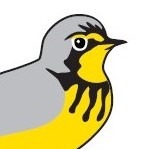
Next month, scientists from Bird Studies Canada will meet with fellow experts from around the globe at the 27th International Ornithological Congress in Vancouver. With roughly 2000 delegates from around 100 countries expected to attend, this promises to be one of the biggest-ever meetings of the world’s bird researchers! Whether or not you will be there, we want to give you a sneak peek of the exciting insights and research results our team is bringing to the world stage.
Harnessing Citizen Science to Monitor and Conserve the World’s Birds
Volunteers are the backbone of Citizen Science projects. Technological advances are enabling volunteers everywhere to contribute to monitoring efforts at an unprecedented scale, making it possible to pursue ambitious projects investigating the status of the world’s birds. These advances are also creating challenges when it comes to managing large amounts of data and analyzing it in a meaningful way. In a plenary talk, Bird Studies Canada’s Jody Allair and David Noble from the British Trust for Ornithology will discuss how volunteers, including Bird Studies Canada’s Citizen Scientists, are shaping the future of bird monitoring.
The Motus Wildlife Tracking System
Today, radio telemetry is the primary means of tracking small animals through space and time with a high level of precision. A desire to expand the use of this technology led to the Motus Wildlife Tracking System: a research network that now has over 150 collaborators and over 400 receivers across the Americas, Europe, and Australia. Motus collaborators use these receiver stations to follow the movements of animals they have tagged for their studies. A symposium will explore the ways that Motus and other complementary technologies are being used to study animal movements and behavior, obtain the information needed to address conservation priorities, and create a more complete picture of bird migration than we’ve ever seen before.
Keeping Island Seabird Colonies Safe from Predators
Invasive species of mammals are a leading cause of seabird declines worldwide. The introduction of invasive mammals to the Haida Gwaii archipelago beginning in the 1700s has caused many seabird colonies to decline or disappear. Bird Studies Canada is working with the Haida Nation and local non-profit groups to remove invasive mammals from two islands in the archipelago that are home to significant seabird colonies. In a plenary talk, Dr. David Bradley will describe these efforts and propose to build the capacity of local people through field training and fundraising, so that these islands can be kept predator-free.
These three examples represent but a small taste of the science stories Bird Studies Canada will be sharing at the International Ornithological Congress. Other talks, roundtable discussions, posters, and workshops will highlight such topics as: the status of grassland species at risk in Manitoba, food resource use by Western Sandpipers on migration stopovers, marsh monitoring and wetland conservation, and more.
Bird Studies Canada’s volunteers, members, and supporters are what make it possible for us to advance research and conservation priorities through the work we do every day. We can’t wait to share the results that we are achieving together. We’re equally excited to learn from other experts and find new opportunities for collaboration, so that we can pursue our mission to conserve Canada’s wild birds even more effectively.
Stay tuned to find out what we take away from the Congress!

